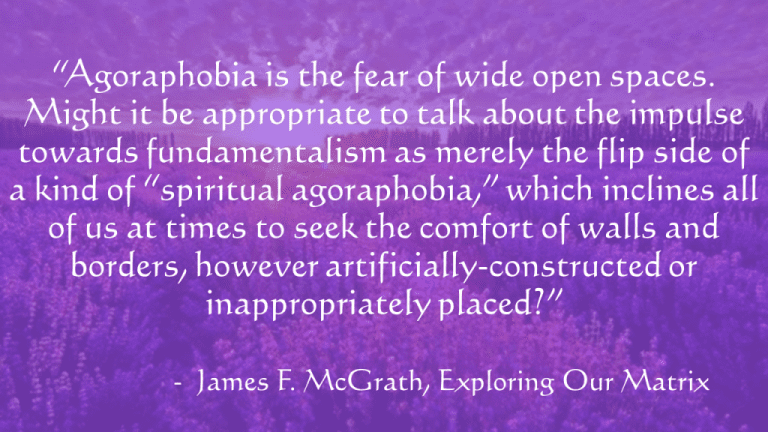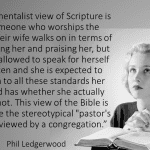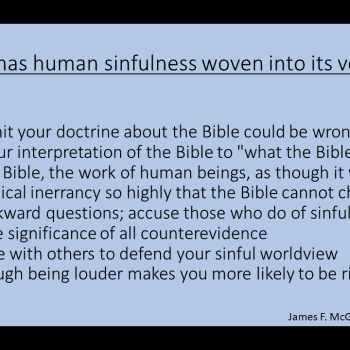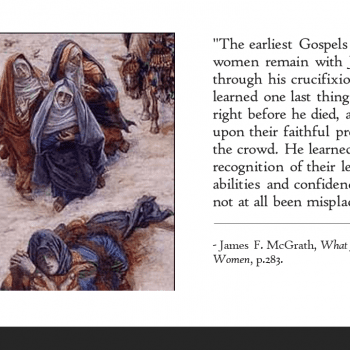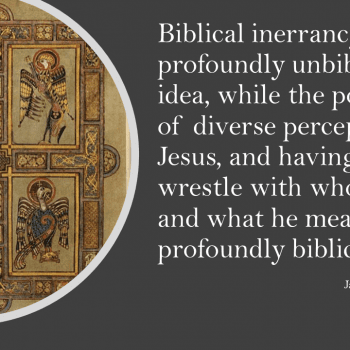Pete Enns shared some thoughts recently about a subject that often keeps more conservative religious people frightenedly clinging to views that were passed on to them. Here is an excerpt:
I feel I need to let go of building those boundaries because my entire Christian life has been about doing that very thing—creating and holding tightly to categories, behaviors, and associations that kept my boundaries neat and clear.
Only to find, as I lived more and experienced things I never would have scripted, that all those things can’t quite square with my reality…
Once the unfamiliar reshaping of faith begins, our tendency is to want to snap back to that place of comfort as soon as possible—even if that comfort is of a new and strange sort. Whereas the boundaries were once drawn too narrowly (and we know that now), we still want boundaries drawn, if only a bit further out. Even if those boundaries are now beyond the horizon, we want to know that they are at least there and that we will see them if we walk just a bit further.
What I’m saying is that’s what I feel I need to keep letting go of—that need to see, if even dimly, how it all comes together.
That’s what I mean by “The Sin of Certainty.” Not that feeling a sense of certainty and “fit” is sin. Rather once the familiar begins to feel strange and inadequate, sin is seeking to stay put or venture out a short few steps only to turn back quickly.
Sometimes we just need to say, ”Well things have changed. I don’t know where the boundaries are, and that’s OK.” Keeping those boundaries tight or seeking to find new ones too quickly, though it may look like an act of faith, may very well be an act of fear instead.
True faith is letting go once you sense you need to.
See also Pete’s response to Michael Kruger’s statements about Jen Hatmaker. On a related topic, Buddy Stark wrote in a post for BioLogos with the title “Praising God in the Planetarium,” “We don’t do God any favors by pretending like we have the answers to all questions, or avoiding questions without easy answers.” That seemed memeworthy, and so I combined the quote with an image of the inscription on the Holcomb Observatory at Butler University, which seemed to connect naturally with the title of Stark’s post:
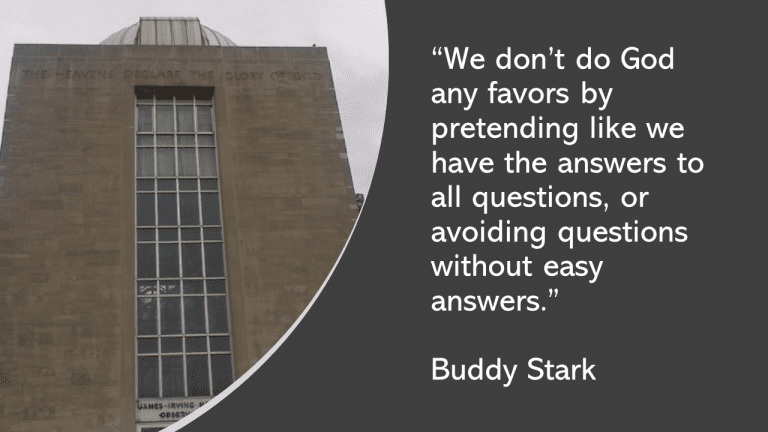
See also my 2011 post on “spiritual agoraphobia.”
http://peterennsonline.com/yeah-but-where-are-the-boundaries/



